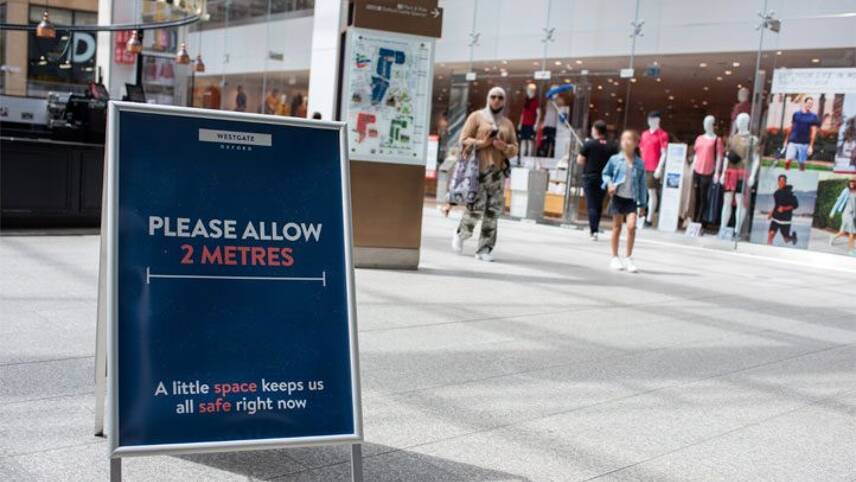Register for free and continue reading
Join our growing army of changemakers and get unlimited access to our premium content

'Non-essential' retailers were permitted to open again in England in April
Published by the British Retail Consortium (BRC), the figures cover more than 25% of the UK’s retail sector by turnover, accounting for all consortium members disclosing their carbon emissions. Sources of emissions covered include store operations and deliveries to and from stores.
The BRC had set its retailer members a target to deliver a 25% absolute reduction in emissions between 2005 and 2020. Overall, this target was far exceeded.
Despite this strong progress, the BRC said in a statement that there is “still much more” to be done to deliver the sector’s collaborative transition to net-zero by 2040 – ten years ahead of the UK Government’s legally binding deadline. The Consortium’s climate action roadmap outlines five ‘pathways’ to net-zero, namely:
- Ensuring that greenhouse gas (GHG) impacts are at the core of business decisions
- Improving energy efficiency at sites and sourcing renewable energy
- Shifting to low-carbon logistics
- Sustainable sourcing
- Supporting customers and employees to reduce the carbon footprint of their lifestyles
Of these focus areas, logistics is raised as a concern alongside the new data. While transport-related emissions fell by 43% between 2005 and 2020, when controlled for growth, the real-world reduction in absolute terms was just 15%. This is a challenge faced by many sectors, given that transport has been the UK’s most-emitting sector since 2016. The BRC is working with Crown Estate, DP World, Google, IBM and PwC to support the delivery of the climate action roadmap.
Retailers signed up to the roadmap include Dunelm, IKEA, Pets at Home, TK Maxx, Wickes, Wilko and Dixons carphone. The supermarket and fashion sectors are also well-represented among the cohort, alongside food-to-go giants like Greggs and Costa Coffee.
Co-op Group’s chief executive Steve Murrells, who is chairing the steering group for the roadmap, said the initiative can “help bring about bold and collective action across our industry and play a part in making things fairer for our planet”.
He said: “The global response to the pandemic has shown us what we can achieve when the need is great and urgent enough. The required levels of co-operation needed to tackle climate change are unprecedented and the BRC Roadmap will help unify UK retailers around a common purpose.”
Co-op Group notably updated its own climate targets earlier this month. Its new strategy includes a 2040 net-zero target, covering the whole group value chain. In the shorter term, Co-op Food will target carbon-neutral own-brand products by 2025.
Report: Can the retail sector deliver a green recovery?
edie readers interested in the topics covered in this news story are encouraged to access the free Mission Possible: Green Recovery report on retail.
Published in late 2020 with the support of Reconomy, the report outlines the challenges that retailers face in relation to the coronavirus pandemic, and the opportunities that the green recovery will bring, using first-person opinions from a steering group of experts in the sector, alongside the results of edie’s own survey of 240+ sustainability and energy professionals.
Sarah George


Please login or Register to leave a comment.